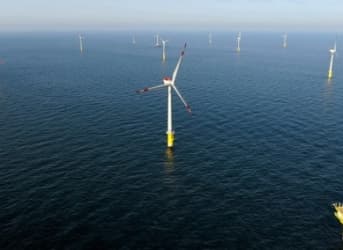Interconnectivity? Check. Lessens dependence on Russia? Check. Fosters renewables growth while addressing climate goals? Check. Norway’s upcoming NordLink accomplishes all of the above, but is it representative of a larger trend in European energy security a la the European Commission’s “energy union”? The short answer is yes, though with some sizeable reservations.
On Tuesday, February 24 the European Commission (EC) leaked a 19-page draft blueprint for an “energy union” – a grab bag of policies and proposals designed to transform the 28-member European Union into a more cohesive energy market. Despite its seemingly widespread appeal, the initiative has revealed deep fractures and double standards among the 28 member nations. Piecemeal, instead of universal, Norway has the jump.
Norwegian state-owned energy system operator Statnett and European electricity transmission operator TenneT have now completed a contract for the construction of NordLink, a high-voltage submarine cable between Northern Germany and Norway. The 387-mile cable – due in 2020 – has a capacity of 1,400 megawatts (MW) and will provide an outlet for Norway’s still growing hydropower industry. Operating at full capacity, the DC power cable can cover approximately three percent of Germany’s electricity demand. Related: Could Iranian Gas Be The Solution For Europe?
NordLink joins a suddenly thriving industry of subsea cables that connect one of Europe’s leading renewable energy producers to some of its most thirsty members. Norway and Denmark just completed Skagerrak-4, increasing the subsea capacity between the two nations to 1,700 MW. The NSN interconnector – another 1,400 MW cable – plans to link Norway to the UK by 2020, where it could reduce Britain’s wholesale power prices by up to 2 percent.
At a cost of roughly $5 billion, NordLink and its counterparts are but a small step toward an eventual European super grid – EC president Jean-Claude Juncker has identified nearly $100 billion in necessary interconnector investments for the next three years alone. The next step is the North Sea.
Moving toward 2030, all eyes will be on the North Sea Countries’ Offshore Grid Initiative (NSCOGI). The collaborative effort between nine EU nations and Norway looks to quickly develop integrated offshore wind generation and interconnector projects on a massive scale. If all goes to plan – a plan that lacks political mandate and is truthfully in its infant stage – North Sea winds have the potential to provide Europe with up to 10 percent of its electricity. After paying for itself, the grid would reduce the cost of new wind installations by nearly 30 percent.
The European Council will convene on March 19 to discuss, among other things, the future of the NSCOGI and other regional grids. While support is favorable, fragile energy relationships with Russia and strong concepts of national sovereignty place growth limits on the trend in the near-term. Related: EU Energy Union May Be Biting Off More Than It Can Chew
Hungary’s Prime Minister Viktor Orban, for one, expects an escalating conflict as Brussels looks to insert itself in Hungary’s bilateral gas negotiations with Russia. In a meeting last week with Russian President Vladimir Putin, the two parties agreed to extend a 20-year gas supply contract, minus its previous take-or-pay obligations. Hungary now pays nearly 50 percent less per thousand cubic meters than it did in 2009. With nuclear and gas storage arrangements still on the docket, the burgeoning trade relationship provides a counter to the more anti-Kremlin narrative present in Northern and Western Europe.
Between the Nordic countries and Hungary, Germany lies somewhere in the grey. It’s Russia’s largest gas customer, but a progressive renewable state. The existential crisis is laid bare as German Chancellor Angela Merkel tries to strike a balance between the EU’s uncompromising sanctions and her own country’s energy interests. With little common ground, Germany is often a two-way player – a flexible arrangement threatened by the rigid constructs of the commission’s energy union. In the middle of a nuclear phase-out and still far from its renewable energy goals, Germany is scooping up coal, and more and more of the newly cheap (thanks to sanctions and low oil prices) Russian variety.
With appeals for clearer governance and flexibility echoing from the UK to the Czech Republic, a truly interconnected European energy market appears beyond reach. Regionally however, the North Sea is about to heat up.
By Colin Chilcoat of Oilprice.com
More Top Reads From Oilprice.com:
- Is The EU Finally Breaking Free Of Russia’s Energy Grip?
- EU Pushes For Greater Integration Into An Energy Union
- EU Extends Sanctions As Rosneft Waits For A Bailout

















